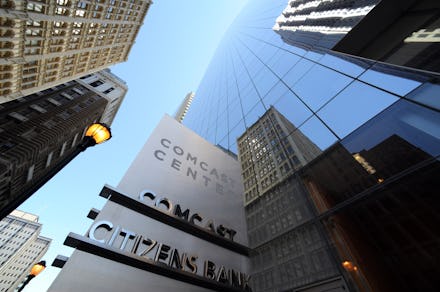And the Most Hated Companies in America Are...

The news: Given all the bad press about torturous TSA lines, near midair collisions and accidental porn tweets, you would think that airlines would be the most hated companies in America. And they almost are — save for another industry that's even worse.
The most hated industry in America is in fact the telecom sector, according to the American Consumer Satisfaction Index (ACSI), a survey of 7,000 American customers. The latest report shows that subscription TV services and Internet service providers (ISPs) received the lowest customer satisfaction ratings out of 43 industries — below airlines, telephone companies, hospitals and the U.S. Postal Service.
The numbers also indicate a noticeable drop from last year; subscription TV's results fell by 4.4%, while ISP approval ratings dropped 3.1%.
"Over-the-top video services, like Netflix and Hulu, threaten subscription TV providers and also put pressure on ISP network infrastructure," ACSI chairman Claes Fornell wrote in a press release. "Customers question the value proposition of both, as consumers pay for more than they need in terms of subscription TV and get less than they want in terms of Internet speeds and reliability."
The ASCI survey also had some bad news for the proposed Comcast-Time Warner merger; the two companies, which provide both subscription TV and Internet, had some of the lowest rankings not only industry-wide, but across the entire American consumer market.
Image Credit: Quartz
Why this is important: The ACSI results come at a time when ISPs are gaining a particularly toxic reputation. Several weeks into the ugly fight over net neutrality, ISPs won a provisional victory last week when the Federal Communications Commission voted to advance a proposal for tiered Internet service.
While that would help ISPs better monetize faster premium service, content providers are not happy about having to pony up more cash, and customers are taking notice too. Comcast has already held Netflix customers hostage with unbearably slow service until the streaming giant agreed to pay more. There's rising concern that the FCC ruling will pave the road for similar stunts in the future.
And though most Americans don't understand the finer nuances of net neutrality, those who do say that they support it. According to Google Consumer Surveys, around 57% of respondents said they didn't know enough about net neutrality; among those who say they did, 23% said they support the principle, while 20% said they were opposed.
The same survey found that Democrats were more likely than Republicans to support net neutrality, which is incidentally the opposite of how the FCC vote went.
Democrats:
Republicans:
While many Americans struggle to understand net neutrality, those who are familiar with the fight over "fast lane" Internet access are against the telecoms' move towards tiered service. And if ISPs give us more fuzzy House of Cards, they may see their customer satisfaction ratings plummet even further next year.